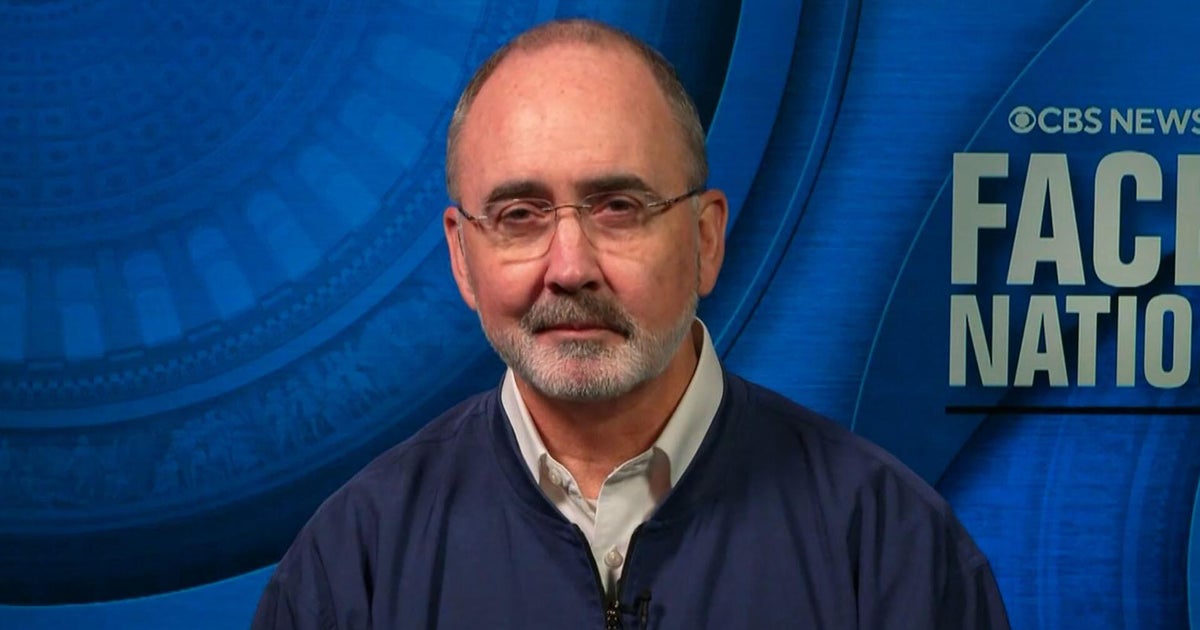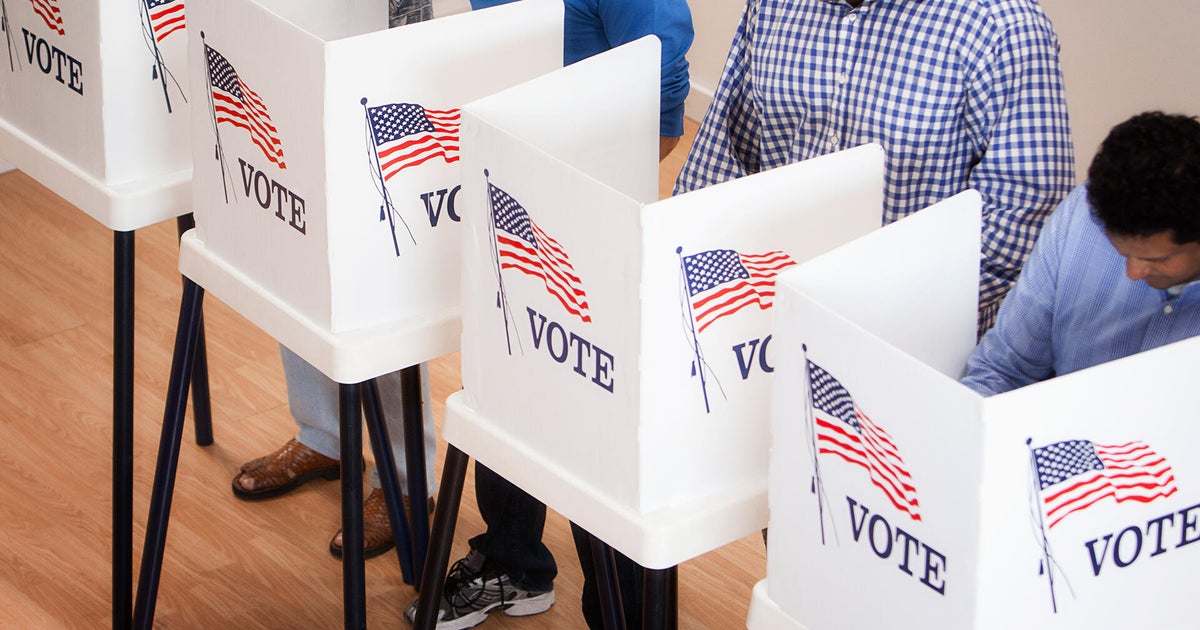Shawn Fain, president of the United Auto Workers Union, praised President Trump’s move to impose tariffs on vehicles and auto parts imported into the U.S., while noting that “tariffs aren’t the total solution.”
“Tariffs are a tool in the toolbox to get these companies to do the right thing, and the intent behind it is to bring jobs back here, and, you know, invest in the American workers,” Fain told CBS News chief Washington correspondent Major Garrett in an interview that aired Sunday on “Face the Nation with Margaret Brennan.”
Mr. Trump announced the 25% tariffs last week, which he said will take effect on April 2, escalating his administration’s effort to boost domestic manufacturers through aggressive trade measures. Fain, who leads the 400,000-member union that went on a 46-day strike in 2023, called the tariffs a “motivator,” noting that “we have to fix the broken trade laws.” And he urged that if jobs are going to be brought back to the U.S., they need to be “good paying union jobs that set standards.”
“The big part of this that gets left out a lot of times is, if they’re going to bring jobs back here, you know, they need to be life sustaining jobs where people can make a good wage, a living wage, have adequate health care and have a retirement security and not have to work seven days a week or multiple jobs, just to scrape to get by, paycheck to paycheck,” Fain said.
Asked whether he has assurances from the Trump administration, Fain said “that is the conversation we’re having.”
“Every time we speak, we talk about bringing jobs back, about bringing the manufacturing base back in this country,” Fain said. “But you know, it doesn’t do any good if they’re going to locate them in places and they’re not going to have the opportunity to have a union, you know. And so naturally, we have concerns.”
Fain pointed to the U.S.’ manufacturing history over the last 30 years, noting that tens of thousands of manufacturing facilities have left under “unfair trade laws.” He agreed with a sentiment shared by Trump officials that auto manufacturing plants have untapped capacity that would allow production to be shifted back to the U.S.
“We have excess capacity. They could bring work back in very short order,” Fain said. “In a situation where they need to build a new plant, yeah, that’s going to take a couple years, but there is plenty of opportunity for these companies to do the right thing and bring work back here overnight, just as quick as they shifted out of here.”
The UAW president reiterated that “tariffs are a tool in the toolbox” and “not the end-all solution,” saying “we have to fix the broken trade system.”
“But the way tariffs work, I mean, it’s a motivator, because there’s going to be a penalty for everything the companies ship in here,” Fain added. “And I’ve had companies tell us, point blank, that they’re going to have to bring product back here if those tariffs are implemented.”
Fain argued that companies don’t have to “raise the price of vehicles a penny with these tariffs,” while criticizing Wall Street for its stance on the issue.
“All this crying about the effects of tariffs, I find it interesting, because to me, this is just Wall Street,” Fain said. “Now that Wall Street’s upset about it, it’s an issue. Where was Wall Street when all these manufacturing facilities have been leaving the country in the last 30 years?”
Automakers’ stocks have tumbled since Mr. Trump’s tariff announcement, with even U.S. automakers feeling the brunt because supply chains are spread throughout North America. On Friday alone, Ford Motor fell 2.6%, and General Motors sank 1.7%.
Meanwhile, 55% of Americans say the administration is too focused on tariffs, while 64% say it’s not focused enough on lowering prices, according to a CBS News poll released Sunday.
The UAW endorsed former Vice President Kamala Harris over Mr. Trump in July. He told CBS News of the endorsement and more recent support for the tariffs that “there’s been no change in where we stand politically as a union.”
“We have expectations. Endorsements are earned,” Fain said, while noting that the union isn’t partisan. “We expect, no matter what party someone comes from, to stand up for what we believe in. So just because we find common ground on tariffs or on trade doesn’t mean that everything else goes out the window.”
During the interview, Fain also slammed an executive order the president signed last week to stop or slow down collective bargaining with agencies that have national security responsibilities, calling it “despicable,” and saying some of the union’s members have been detained. He added that “free speech is under attack, unions are under attack.”
In August 2024, the UAW filed federal labor charges against Mr. Trump and Elon Musk accusing the duo of trying to “intimidate and threaten” workers during an interview on the latter’s social media platform X.




